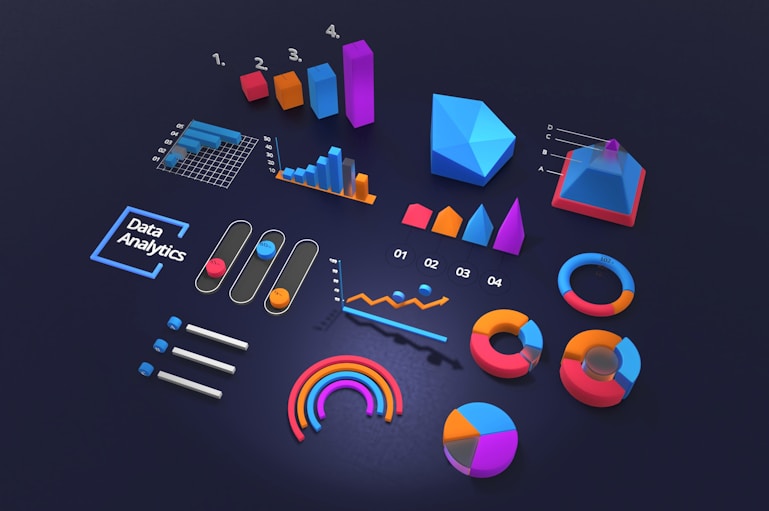Recent Posts
The world of Tech and what the future holds
Artificial Intelligence (AI) is revolutionizing the world of coding, transforming how developers approach software creation. With AI-powered tools, coding has become more efficient, as these tools assist in everything from code generation and debugging to optimization.
Written by
Daniel Ochoja
Published On
11 January 2025
All Posts

Ebube Onuora
27 Decemeber 2024
The Importance of Web Development
Web development plays a vital role in shaping the digital world as we know it. It goes beyond just creating and maintaining websites; it is the backbone of the online presence that modern businesses and individuals rely on daily. From e-commerce platforms to social networks, blogs, and educational websites, web development is involved in nearly every online interaction. The process of web development is intricate and multifaceted, covering several core areas such as front-end development, back-end development, and database management. At the heart of front-end development is the user experience (UX) and user interface (UI) design. This area is dedicated to ensuring that users have an enjoyable, smooth, and intuitive experience when they visit a website or use an application. Front-end developers utilize languages like HTML, CSS, and JavaScript to create layouts, ensure responsiveness, and add interactive features that engage visitors. They must also optimize websites for various screen sizes, making sure that web applications are mobile-friendly, fast, and accessible to all users, regardless of their device. On the flip side, back-end development deals with everything that happens behind the scenes. Back-end developers build and manage the infrastructure that supports the functionality of websites. This involves setting up servers, working with databases, handling APIs (application programming interfaces), and ensuring that the entire system runs efficiently and securely. Back-end developers often work with languages like Node.js, Python, Ruby, and PHP. One of the most important aspects of web development today is database management. Websites and applications generate massive amounts of data that need to be stored, processed, and retrieved in real time. As the volume of data grows, so does the need for robust databases that can handle complex queries and scale efficiently. Technologies like MongoDB, SQL, and Firebase are commonly used for database management. Web development also emphasizes security. With the growing number of cyber threats, developers must implement measures to protect user data, prevent unauthorized access, and ensure the integrity of transactions. Whether it's through secure authentication methods, data encryption, or regular vulnerability testing, security is integral to web development. Finally, with the rise of new technologies such as Progressive Web Apps (PWAs), artificial intelligence (AI), and machine learning (ML), web development continues to evolve. Developers now integrate features like chatbots, recommendation systems, and personalized content delivery to create more dynamic and interactive user experiences. As the digital landscape grows, web development will continue to be an essential part of shaping how we communicate, do business, and consume information online.
Read More

George Stephen
5 January 2025
The Power of Data Science
In the digital age, data is king, and data science is the key that unlocks its potential. Data science is not just a buzzword; it is an incredibly powerful tool that enables businesses, governments, and individuals to make smarter decisions based on insights extracted from vast amounts of data. At its core, data science is the process of analyzing complex data sets to uncover hidden patterns, correlations, and trends. But data science is much more than just number crunching. It is a multidisciplinary field that combines statistical analysis, machine learning, data mining, programming, and domain knowledge to derive actionable insights from raw data. Data scientists use a combination of tools and techniques, including Python, R, SQL, and advanced machine learning algorithms, to process and analyze data. One of the key aspects of data science is machine learning, which allows systems to learn from past experiences and improve their performance without being explicitly programmed. For instance, machine learning models can be used to predict future outcomes based on historical data. This makes it possible to automate decision-making processes and predict trends before they happen. For example, in retail, data scientists use machine learning algorithms to recommend products to customers based on their previous purchases or browsing history. The role of data science in healthcare is equally transformative. By analyzing patient data, data scientists can predict the likelihood of certain health conditions, optimize treatment plans, and even help in early diagnosis. For instance, algorithms can be trained to detect early signs of diseases like cancer by analyzing medical imaging data. In the finance industry, data science is used to identify fraudulent transactions, optimize trading strategies, and assess credit risks. Similarly, in marketing, data science helps businesses better understand consumer behavior and optimize ad targeting, which can lead to increased revenue. As the amount of data generated worldwide continues to grow exponentially, the demand for data scientists is expected to skyrocket. This is why data science is considered one of the most important and sought-after skills of the 21st century. However, while data science offers immense potential, it also raises important ethical questions, such as data privacy, algorithmic bias, and the responsible use of artificial intelligence. As data scientists harness the power of data, it is essential that they remain mindful of the ethical implications of their work and strive to create systems that are transparent, fair, and responsible.
Read More

Divine Oseh
10 January 2025
The Role of Blockchain Technology
Blockchain technology has emerged as one of the most transformative innovations of the 21st century. Although it is most famously associated with cryptocurrencies like Bitcoin and Ethereum, its potential reaches far beyond digital currencies. Blockchain is a decentralized, distributed ledger that records transactions in a secure, transparent, and immutable way. Each block in a blockchain contains a record of transactions, and once a block is added to the chain, it cannot be altered or deleted. This makes blockchain an incredibly powerful tool for ensuring the integrity and transparency of digital transactions. What makes blockchain so revolutionary is its ability to eliminate intermediaries, such as banks or financial institutions, in transactions. This reduces the cost and time involved in transferring assets, making it possible to conduct peer-to-peer transactions without the need for a trusted third party. This decentralized nature of blockchain is particularly valuable in industries where trust and security are critical, such as finance, supply chain management, and healthcare. In finance, blockchain has the potential to disrupt traditional banking systems by enabling faster and cheaper cross-border payments, reducing the need for intermediaries like banks and clearinghouses. In supply chain management, blockchain allows for real-time tracking of products, ensuring that consumers can trace the origin of the goods they purchase and verify their authenticity. This is particularly valuable in industries such as food safety, pharmaceuticals, and luxury goods, where counterfeiting and fraud are major concerns. Blockchain’s transparency and security also make it a valuable tool in the healthcare industry. Blockchain can be used to securely store patient data, ensuring that it is both accessible and protected. It can also streamline the process of sharing patient information between healthcare providers, allowing for faster diagnoses and more personalized care. One of the most exciting developments in blockchain is the concept of smart contracts—self-executing contracts that automatically enforce the terms and conditions written into them. These contracts can be used in a wide variety of applications, including real estate transactions, insurance claims, and legal agreements, without the need for human intervention. As blockchain technology continues to mature, it is expected to disrupt a wide range of industries, from banking and insurance to healthcare and logistics. It has the potential to create a more secure, transparent, and efficient digital world, where trust is no longer reliant on centralized authorities but on decentralized networks. As the world moves towards greater digitalization, blockchain is poised to play a key role in shaping the future of the internet and the global economy..